order histories, retained contact details for faster checkout, review submissions, and special promotions.
Forgot password?
order histories, retained contact details for faster checkout, review submissions, and special promotions.
Locations
Orders Processing,
Shipping & Receiving,
Warehouse
2 Shaker Rd Suites
B001/B101
Shirley, MA 01464
Production Lab
Floor 6, Suite 620
20700 44th Avenue W
Lynnwood, WA 98036
Telephone Numbers
Tel: +1 (206) 374-1102
Fax: +1 (206) 577-4565
Contact Us
Additional Contact Details
order histories, retained contact details for faster checkout, review submissions, and special promotions.
Forgot password?
order histories, retained contact details for faster checkout, review submissions, and special promotions.
GPR65 / TDAG8
G protein-coupled receptor 65
GPR65 (TDAG8), a Lysophospholipid/Lysosphingolipid Receptor, is a molecular target for psychosine, a toxic lipid formed by the breakdown of galactosylceramide (cerebroside). A build-up of psychosine, caused by the lack of galactosylceramidase, results in the death of the myelin-synthesizing cells, oligodendrocytes, which is associated with Krabbe disease. Recent evidence suggests that GPR65 is one of the proton-sensing GPCRs coupling to adenylyl cyclase and psychosine and its related lysosphingolipids behave as if they were antagonists against protein-sensing receptors, including TDAG8, GPR4 and OGR1 (Wang et al. 2004.)
| Gene Name: | G protein-coupled receptor 65 |
| Family/Subfamily: | GPCR , Lysophospholipid/Lysosphingolipid |
| Synonyms: | GPR65, G-protein coupled receptor 65, Gpcr25, HTDAG8, TDAG8, T-cell death-associated gene 8, Psychosine receptor, G protein-coupled receptor 65 |
| Target Sequences: | NM_003608 NP_003599.2 Q8IYL9 |
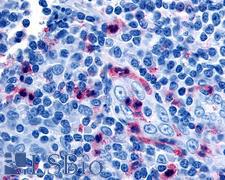
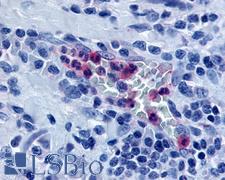
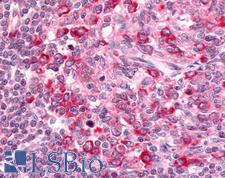
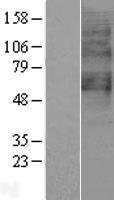

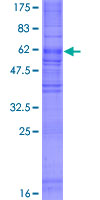
If you do not find the reagent or information you require, please contact Customer.Support@LSBio.com to inquire about additional products in development.











